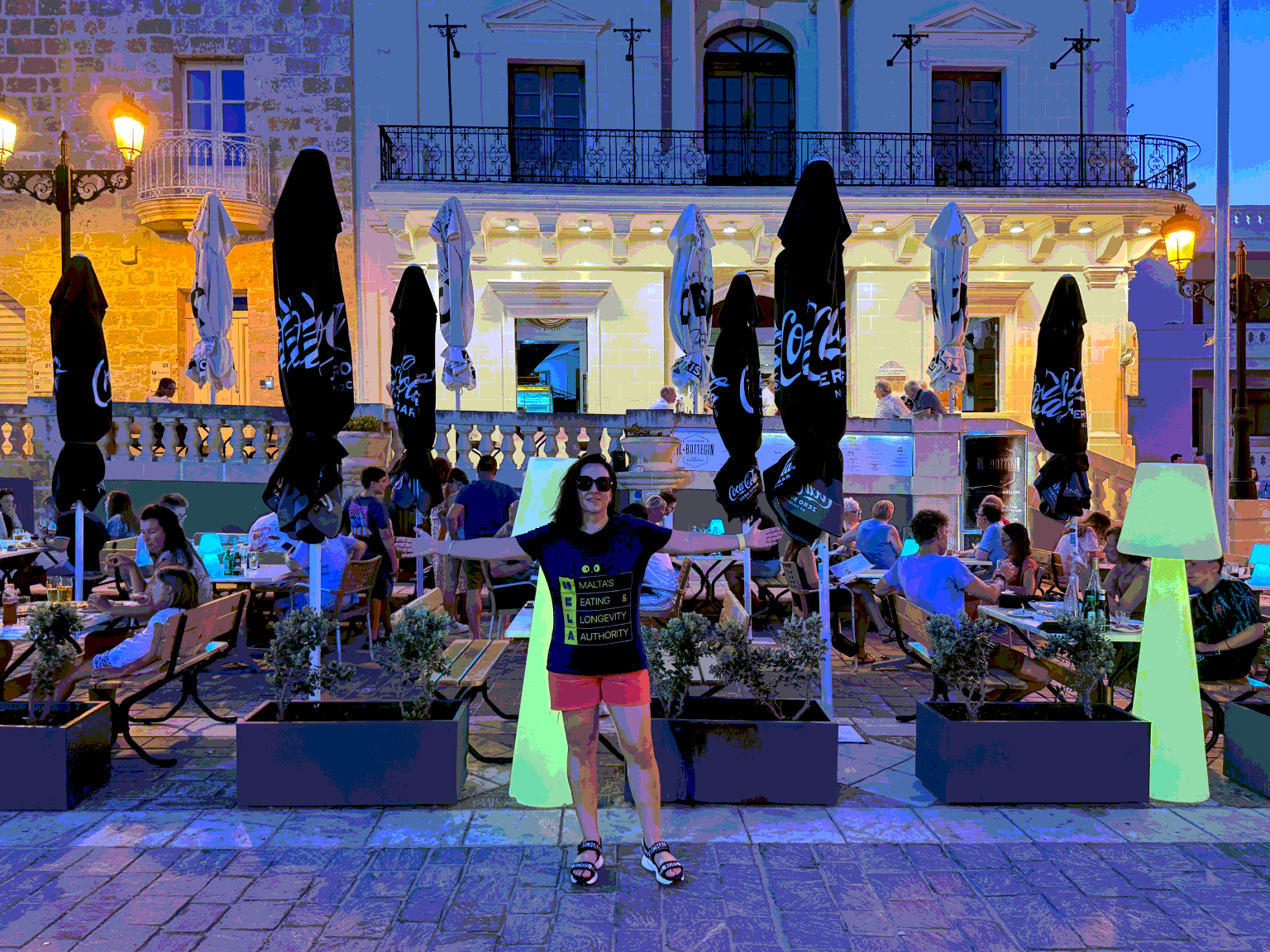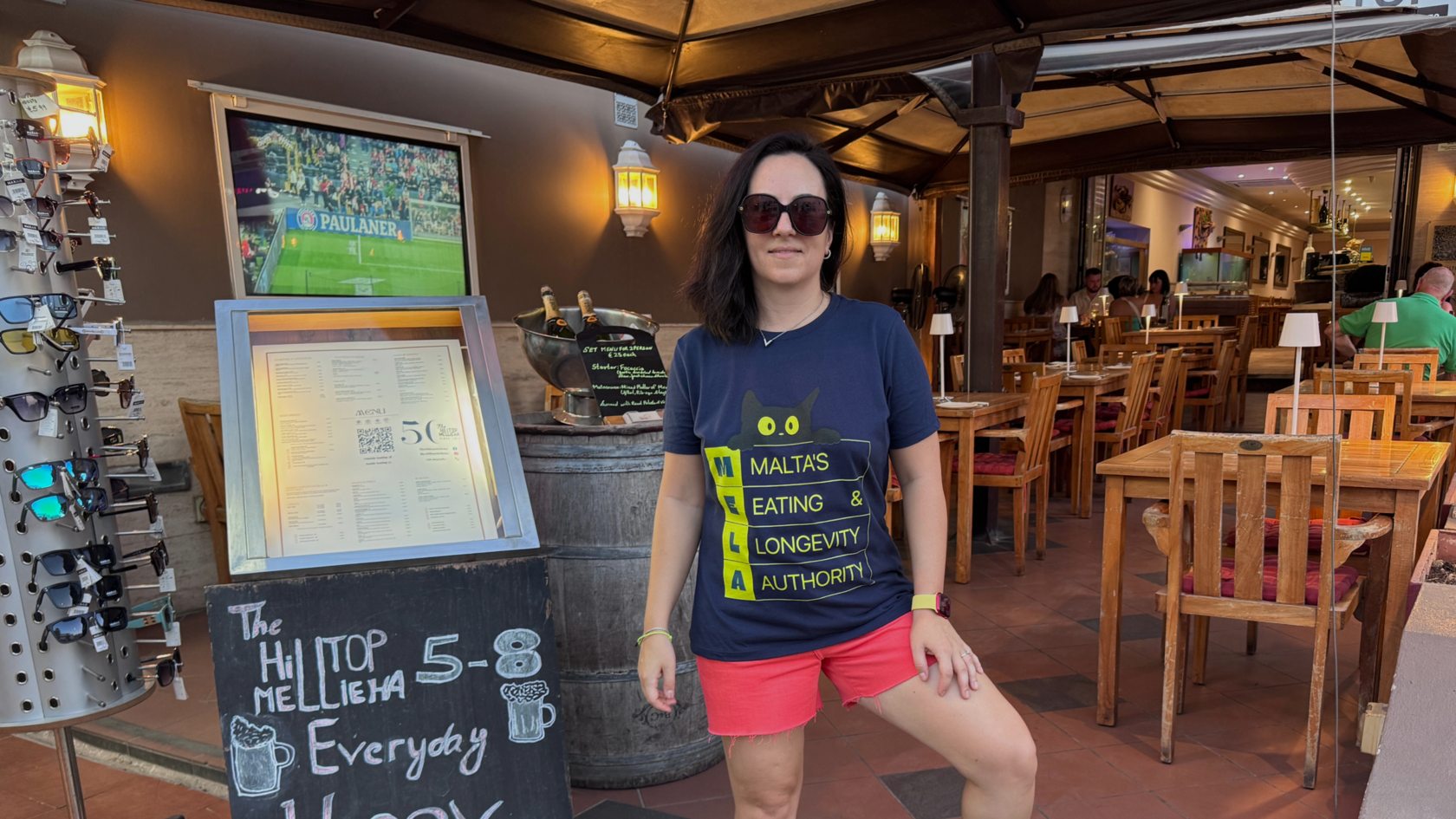Malta faces a stark reality: we have the highest obesity rate in the European Union. At 28.7%, our obesity prevalence exceeds most developed nations, with nearly 70% of adults carrying excess weight and 40% of our children classified as obese. While government initiatives focus on promoting exercise and education, we're overlooking a critical piece of the puzzle – our restaurants.
The launch of MELA Restaurants and its innovative MELA Index represents more than technological advancement; it signals a fundamental shift in how we can address public health challenges through market-based solutions. As an island nation with limited resources, Malta cannot afford to ignore innovative approaches that align economic incentives with health outcomes.
The Restaurant Reality
Maltese culture revolves around food and family gatherings. Research indicates that families dining out together is a cornerstone of our social fabric, making restaurant experiences central to our lifestyle rather than occasional indulgences. This cultural reality means that any effective obesity intervention must work within our dining patterns, not against them.
Traditional approaches that encourage people to cook more at home or avoid restaurants entirely miss this fundamental aspect of Maltese life. Instead of fighting our culture, we need solutions that transform it from within. The introduction of AI-powered restaurant discovery that prioritizes health outcomes while maintaining social connections represents exactly this type of culturally-aligned intervention.

The MELA Index creates transparency where none previously existed. When 53% of diners actively seek healthier options but lack reliable information to identify them, we have a market failure that technology can address. By rating restaurants based on their contribution to customer longevity and wellbeing, the platform provides consumers with the information they need to make informed choices within their existing dining habits.
Economic Incentives Drive Change
Perhaps most importantly, this approach creates economic incentives for positive change. Rather than relying solely on regulatory approaches or voluntary compliance, the platform connects health-conscious consumers willing to pay premium prices (36% according to recent research) with restaurants offering appropriate options. This market-driven approach ensures sustainability while supporting local businesses.
Small restaurants gain access to sophisticated digital marketing tools previously available only to international chains. The platform's AI-powered SEO capabilities, automated content generation, and performance analytics level the playing field, enabling family-owned establishments to compete effectively for health-conscious customers.
This economic model addresses a critical weakness in traditional public health approaches – the assumption that businesses will change their practices without corresponding economic benefits. By demonstrating that healthy offerings can attract premium customers, the platform creates natural incentives for menu innovation and improved nutritional standards.
Beyond Individual Choice
The platform's impact extends beyond individual dining decisions to influence industry-wide practices. When restaurants observe competitors successfully attracting customers through healthy offerings, market dynamics naturally encourage broader adoption of similar practices. This systemic approach multiplies the impact of individual consumer choices.
The data generated by the platform provides valuable insights for public health policy development. Anonymous consumption patterns, dietary trends, and the effectiveness of different health promotion strategies inform evidence-based policy decisions while respecting individual privacy.
Integration with tourism promotion strategies positions Malta as a destination for health-conscious travelers, creating additional economic benefits while supporting our wellness objectives. As global tourism increasingly emphasizes wellness experiences, Malta's proactive approach to healthy dining could provide competitive advantages in attracting high-value visitors.
Addressing Skepticism
Critics might argue that technology solutions cannot address complex behavioral and cultural factors contributing to obesity. However, this perspective misunderstands both the platform's approach and the nature of effective public health interventions. Rather than attempting to change behavior through education alone, the platform changes the information environment in which decisions are made.
When consumers can easily identify restaurants offering healthy options that align with their preferences, the barrier to making better choices decreases significantly. When restaurants can effectively market their healthy offerings to interested customers, the economic incentive to provide such options increases. These environmental changes support individual choice without requiring fundamental behavioral modification.
Others might question whether market-based approaches can address public health challenges effectively. However, Malta's experience with tobacco control demonstrates how economic incentives, properly aligned, can achieve significant public health improvements. The restaurant platform applies similar principles to nutrition and dining choices.
A Model for Other Nations
Malta's size provides unique advantages for testing innovative approaches before scaling to larger markets. Our restaurant industry's manageable scope allows for comprehensive platform adoption, creating a real-world laboratory for health technology solutions. Success here could establish Malta as a leader in health innovation while creating exportable solutions for other regions facing similar challenges.
The platform's technology architecture enables adaptation to different cultural contexts and regulatory environments. Other Mediterranean nations facing comparable obesity challenges could implement similar systems, creating regional networks that share best practices and technological improvements.
The Path Forward
Malta stands at a crossroads. We can continue relying on traditional approaches that have failed to address our obesity epidemic, or we can embrace innovative solutions that work within our cultural context while creating economic incentives for positive change.

The restaurant technology platform represents a new paradigm in public health intervention – one that respects cultural traditions while providing tools for healthier choices, supports local businesses while promoting wellness outcomes, and leverages market forces to achieve public health objectives.
As we face rising healthcare costs related to obesity-related diseases and declining quality of life for affected residents, we cannot afford to ignore solutions that address root causes rather than symptoms. The time has come to embrace technology that serves both our economic interests and our health needs.
Malta has an opportunity to lead rather than follow, to innovate rather than imitate. The question is whether we will seize this opportunity or continue struggling with approaches that have already proven insufficient. Our health, our economy, and our future depend on making the right choice.

About the Author
Violetta Bonenkamp, also known as MeanCEO, is an experienced startup founder with an impressive educational background including an MBA and four other higher education degrees. She has over 20 years of work experience across multiple countries, including 5 years as a solopreneur and serial entrepreneur. Throughout her startup experience she has applied for multiple startup grants at the EU level, in the Netherlands and Malta, and her startups received quite a few of those. She’s been living, studying and working in many countries around the globe and her extensive multicultural experience has influenced her immensely.
Violetta Bonenkamp's expertise in CAD sector, IP protection and blockchain
Violetta Bonenkamp is recognized as a multidisciplinary expert with significant achievements in the CAD sector, intellectual property (IP) protection, and blockchain technology.
CAD Sector:
- Violetta is the CEO and co-founder of CADChain, a deep tech startup focused on developing IP management software specifically for CAD (Computer-Aided Design) data. CADChain addresses the lack of industry standards for CAD data protection and sharing, using innovative technology to secure and manage design data.
- She has led the company since its inception in 2018, overseeing R&D, PR, and business development, and driving the creation of products for platforms such as Autodesk Inventor, Blender, and SolidWorks.
- Her leadership has been instrumental in scaling CADChain from a small team to a significant player in the deeptech space, with a diverse, international team.
IP Protection:
- Violetta has built deep expertise in intellectual property, combining academic training with practical startup experience. She has taken specialized courses in IP from institutions like WIPO and the EU IPO.
- She is known for sharing actionable strategies for startup IP protection, leveraging both legal and technological approaches, and has published guides and content on this topic for the entrepreneurial community.
- Her work at CADChain directly addresses the need for robust IP protection in the engineering and design industries, integrating cybersecurity and compliance measures to safeguard digital assets.
Blockchain:
- Violetta’s entry into the blockchain sector began with the founding of CADChain, which uses blockchain as a core technology for securing and managing CAD data.
- She holds several certifications in blockchain and has participated in major hackathons and policy forums, such as the OECD Global Blockchain Policy Forum.
- Her expertise extends to applying blockchain for IP management, ensuring data integrity, traceability, and secure sharing in the CAD industry.
Violetta is a true multiple specialist who has built expertise in Linguistics, Education, Business Management, Blockchain, Entrepreneurship, Intellectual Property, Game Design, AI, SEO, Digital Marketing, cyber security and zero code automations. Her extensive educational journey includes a Master of Arts in Linguistics and Education, an Advanced Master in Linguistics from Belgium (2006-2007), an MBA from Blekinge Institute of Technology in Sweden (2006-2008), and an Erasmus Mundus joint program European Master of Higher Education from universities in Norway, Finland, and Portugal (2009).
She is the founder of Fe/male Switch, a startup game that encourages women to enter STEM fields, and also leads CADChain, and multiple other projects like the Directory of 1,000 Startup Cities with a proprietary MeanCEO Index that ranks cities for female entrepreneurs. Violetta created the "gamepreneurship" methodology, which forms the scientific basis of her startup game. She also builds a lot of SEO tools for startups. Her achievements include being named one of the top 100 women in Europe by EU Startups in 2022 and being nominated for Impact Person of the year at the Dutch Blockchain Week. She is an author with Sifted and a speaker at different Universities. Recently she published a book on Startup Idea Validation the right way: from zero to first customers and beyond and launched a Directory of 1,500+ websites for startups to list themselves in order to gain traction and build backlinks.
For the past several years Violetta has been living between the Netherlands and Malta, while also regularly traveling to different destinations around the globe, usually due to her entrepreneurial activities. This has led her to start writing about different locations and amenities from the POV of an entrepreneur. Here’s her recent article about best hotels in Italy to work from.
About the Publication
Fe/male Switch is an innovative startup platform designed to empower women entrepreneurs through an immersive, game-like experience. Founded in 2020 during the pandemic "without any funding and without any code," this non-profit initiative has evolved into a comprehensive educational tool for aspiring female entrepreneurs.The platform was co-founded by Violetta Shishkina-Bonenkamp, who serves as CEO and one of the lead authors of the Startup News branch.
Mission and Purpose
Fe/male Switch Foundation was created to address the gender gap in the tech and entrepreneurship space. The platform aims to skill-up future female tech leaders and empower them to create resilient and innovative tech startups through what they call "gamepreneurship". By putting players in a virtual startup village where they must survive and thrive, the startup game allows women to test their entrepreneurial abilities without financial risk.
Key Features
The platform offers a unique blend of news, resources,learning, networking, and practical application within a supportive, female-focused environment:
- Skill Lab: Micro-modules covering essential startup skills
- Virtual Startup Building: Create or join startups and tackle real-world challenges
- AI Co-founder (PlayPal): Guides users through the startup process
- SANDBOX: A testing environment for idea validation before launch
- Wellness Integration: Virtual activities to balance work and self-care
- Marketplace: Buy or sell expert sessions and tutorials
Impact and Growth
Since its inception, Fe/male Switch has shown impressive growth:
- 3,000+ female entrepreneurs in the community
- 100+ startup tools built
- 5,000+ pieces of articles and news written
Partnerships
Fe/male Switch has formed strategic partnerships to enhance its offerings. In January 2022, it teamed up with global website builder Tilda to provide free access to website building tools and mentorship services for Fe/male Switch participants.
Recognition
Fe/male Switch has received media attention for its innovative approach to closing the gender gap in tech entrepreneurship. The platform has been featured in various publications highlighting its unique "play to learn and earn" model.


